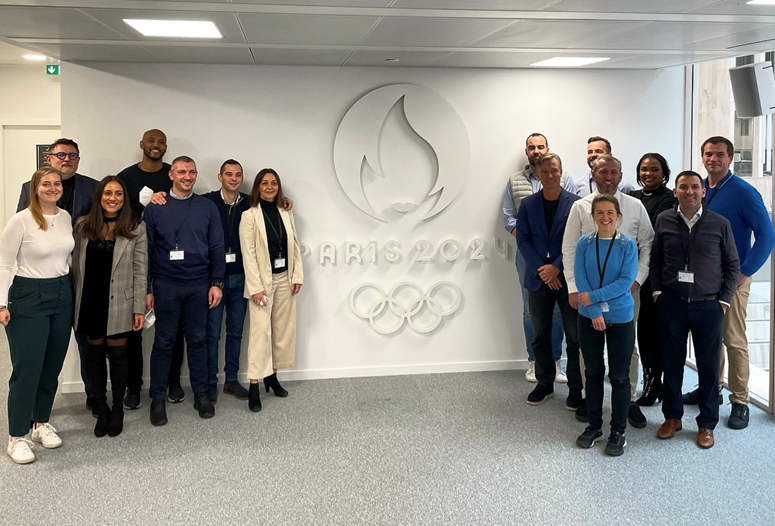The Editor of International Small Business Journal shared insights into achieving publication success in this virtual event.
Birkbeck’s Department of Management was delighted to welcome Dr Robert Wapshott, Editor for International Small Business Journal (CABS 3*), to our latest Meet the Editor session. The event was chaired by Dr Muthu De Silva, Assistant Dean (Research) in Birkbeck’s School of Business, Economics and Informatics.
How to publish papers in International Small Business Journal
Dr Wapshott began the session with advice for researchers aspiring to publish in International Small Business Journal (ISBJ). The journal focuses on publishing high-quality, highly relevant research on small business and entrepreneurship and features a broad range of fields and approaches.
Dr Wapshott shared some key details about ISBJ emphasising that the team works hard to reach decisions quickly and the importance of reviewers’ valued contributions to the journal’s overall strength. Dr Wapshott also highlighted that a small percentage of the manuscripts submitted to the journal are finally published in the journal
When a paper is submitted to ISBJ, it undergoes an editorial review by one of the two editors or the Editor in Chief. This is to check that the submission is relevant in scope and fit for the journal. Papers are then peer-reviewed, hopefully ending in publication.
How can I tell if my paper is a good fit for International Small Business Journal?
Above all, Dr Wapshott advises reading the journal and allowing time for the style to “sink in” to get an idea of whether your work is a good fit. An exercise to support this process would be to select some papers from the journal and study each of them by section.
When submitting papers, it is important to show how the work is relevant to journal’s readership, for instance the kinds of debates that might be of interest. Finding the ‘right’ audience for a paper can help the spread of its author’s ideas because the readers will be engaged in pursuing similar questions and topics.
Dr Wapshott also advised asking for feedback from colleagues that have published in ISBJ before, or who know the field, on whether the paper is a good fit for the journal.
Finally, it is important to consider whether ISBJ publishes the kind of work that you would like to write in terms of length, style and topic and whether there is an engaged readership for the paper’s topic, as this is key to supporting engagement with the paper beyond publication.
Papers accepted for publication in ISBJ have several things in common:
- Clearly articulated contributions to debates that are relevant to the ISBJ audience
- A contribution that matters beyond simple novelty
- Careful engagement with the reviewers’ comments
Advice on writing and submitting a research paper
Dr Wapshott shared some general advice on writing and submitting a research paper.
Firstly, carefully consider keywords and ensure they are not too specific; they should link to other work in the journal and not just the paper submitted. Papers should be written in plain language where possible, showing sophistication instead through the ideas and their development.
What are the reasons for rejecting papers from International Small Business Journal?
Dr Wapshott shared the main reasons why a paper may be desk rejected:
- Vague aims
- Dated literature
- Little sign of claimed contribution
- Poor fit with the journal
If a paper is rejected at the full review stage, it could be due to:
- Questionable contribution (e.g. inadequate theory)
- Argument does not ‘work’, perhaps due to gaps or leaps in reasoning
- Limitations in the method (e.g. inappropriate data for the claims made in the paper)
Advice for responding to reviewers
Dr Wapshott stressed the importance of treating reviewers with respect, even when disagreeing with their comments, by engaging with any feedback given and taking the time to explain your position. A good check is to imagine the reviewer in the room, or that they are an immediate colleague, and consider how you would respond to them.
A question from the audience asked for advice on dealing with rejection. Dr Wapshott focused on this as an evaluation only of the work submitted rather than anything broader, such as the author’s ability or potential. In this context, Dr Wapshott reassured delegates that rejection is something that happens to all researchers.
He encouraged delegates to try and understand what the editors or reviewers see as the weakness of the paper and to recognise the reviewers’ expertise – if it feels like they have missed the point of a paper, how could this be possible? It can be helpful to return to a paper with a fresh view once the comments have settled to see what might need to be improved.
Dr Wapshott’s presentation was followed by a Q&A session with delegates. One attendee asked what makes an article more impactful? Dr Wapshott responded: “It’s all about the significance of the contribution. How does this change how I see the world, how I think about it or practice? The author’s role is to articulate why the contribution matters. Then people can cite the work because there is a really clear takeaway.”
We would like to thank Dr Wapshott for an insightful and productive session.
Join us for our next Meet the Editor Session
Our next Meet the Editor Session will welcome Professor Jonathan Doh, General Editor of Journal of Management Studies on February 14 2022. Find out more and book your place.




